Madeleinemedeiros
On this page, you find all documents, package deals, and flashcards offered by seller madeleinemedeiros.
- 6
- 0
- 0
Community
- Followers
- Following
6 items

Reflexives in Frencg
What are reflexive verbs & pronouns? Reflexive verbs are pronominal verbs–ones that use a reflexive pronoun. The verbs that use reflexive pronouns indicate that the subject of the verb is doing something to itself. If the subject does the...
- Class notes
- • 2 pages •
What are reflexive verbs & pronouns? Reflexive verbs are pronominal verbs–ones that use a reflexive pronoun. The verbs that use reflexive pronouns indicate that the subject of the verb is doing something to itself. If the subject does the...
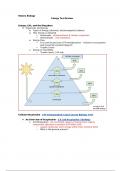
Energy Review Sheet
Energy, life and the biosphere.
- Summary
- • 13 pages •
Energy, life and the biosphere.
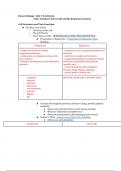
Cell Review Sheet
Cells, Transport, Nerve Cells and the Respiratory System
- Summary
- • 10 pages •
Cells, Transport, Nerve Cells and the Respiratory System
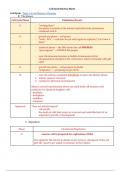
Cell Cycle Review Sheet
Cell Cycle Review Sheet
- Summary
- • 8 pages •
Cell Cycle Review Sheet
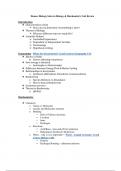
Honors Biology Intro in Biology & Biochemistry Unit Review
Honors Biology Intro in Biology & Biochemistry Unit Review
- Book
- Summary
- • 6 pages •
Honors Biology Intro in Biology & Biochemistry Unit Review
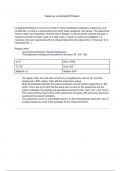
Le Subjoncitf Présent
Le Subjonctif Présent is one of four moods in French (indicative, imperative, subjunctive, and conditional). A mood is a grammatical term which helps categorize verb tenses. The subjunctive mood is used more frequently in French than in English. It has two tenses: present and past. It expresses several concepts, such as a wish, hope, or doubt, as well as an obligation or a necessity. One such expression which is always followed by the subjunctive is “il faut que” (it is necessary that...).
- Class notes
- • 2 pages •
Le Subjonctif Présent is one of four moods in French (indicative, imperative, subjunctive, and conditional). A mood is a grammatical term which helps categorize verb tenses. The subjunctive mood is used more frequently in French than in English. It has two tenses: present and past. It expresses several concepts, such as a wish, hope, or doubt, as well as an obligation or a necessity. One such expression which is always followed by the subjunctive is “il faut que” (it is necessary that...).
